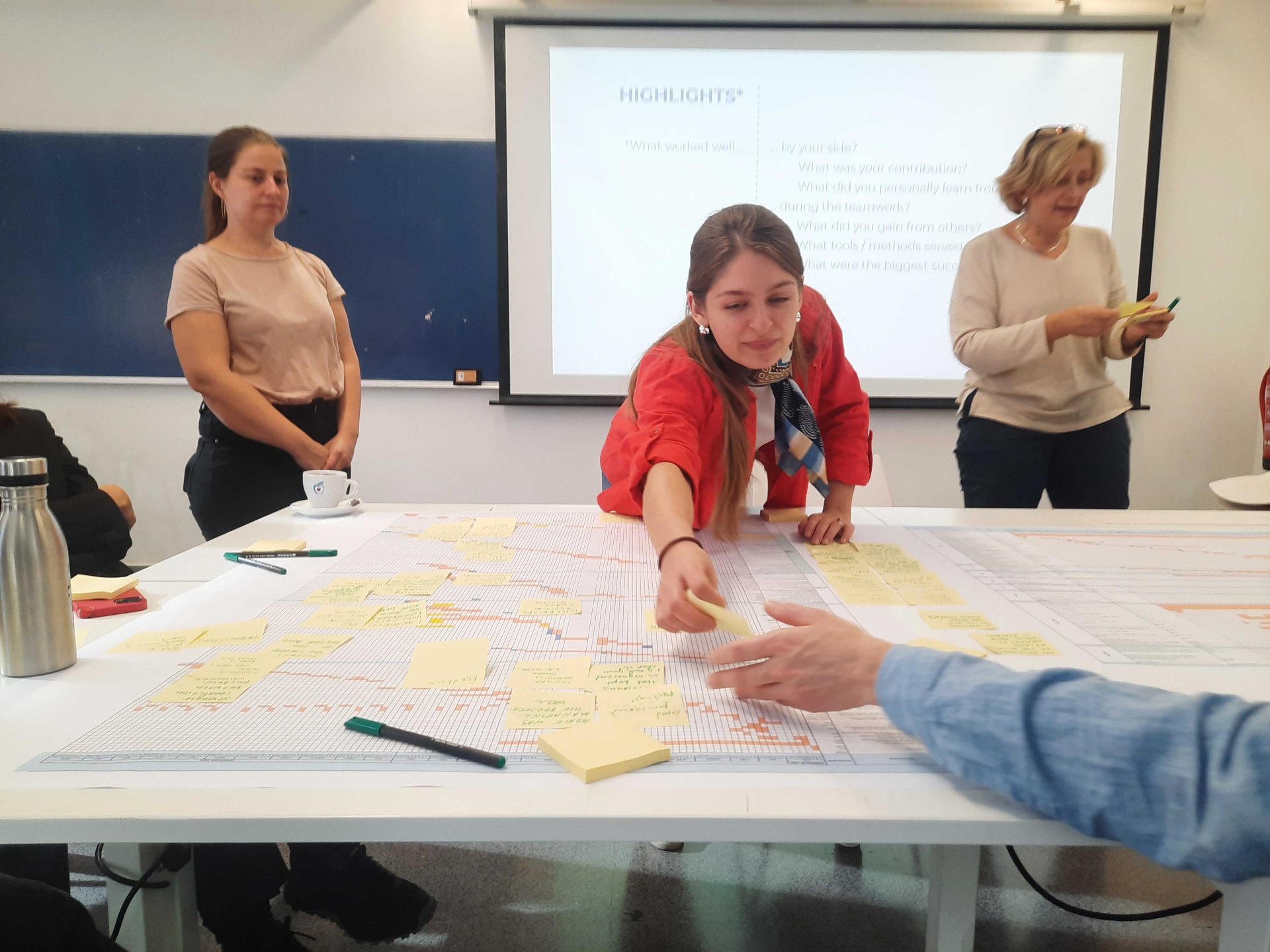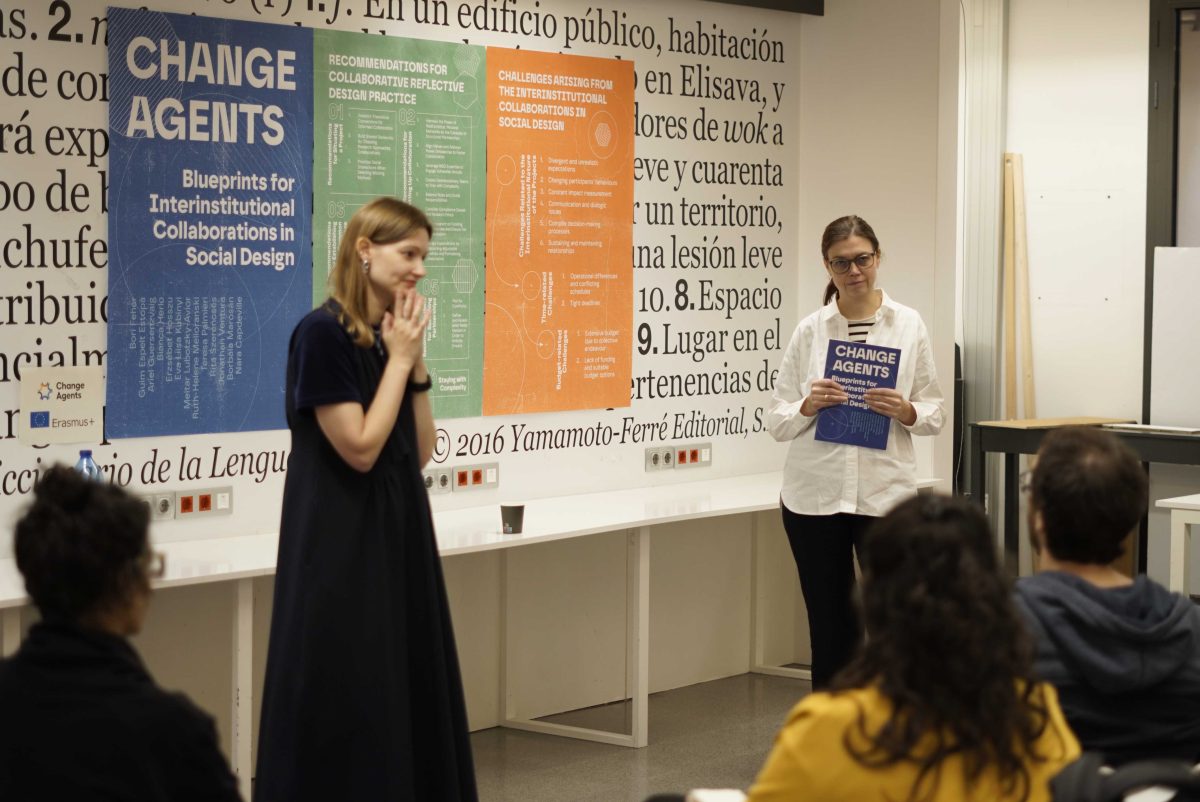“Nothing is permanent, except change.” In the fast-changing landscape of 21st-century societal, political, and urban transformations, individuals and communities must continuously adapt to evolving challenges. But how can we steer these shifts towards positive outcomes? What conditions can foster constructive change, and how can design thinking, alongside cross-sector collaboration, drive meaningful progress? These are the pivotal questions tackled by the Change Agents project, an initiative launched in early 2023 by six international art and design universities (MOME, ELISAVA, EKA, unibz, UDK, Skenkar) and grounded in the work of the Social Design Network. Designed to leverage new methods and strategies to help connect NGOs engaged in addressing social and sustainability challenges with design higher education institutions (HEIs), the project has culminated in a comprehensive methodological guide that could help catalyse social design practices and positive change.
The open-access publication, Change Agents — Blueprints for Interinstitutional Collaborations, aims to support social design education and practice, and in turn drive meaningful societal impact, freely available to educators, students, and NGOs alike.
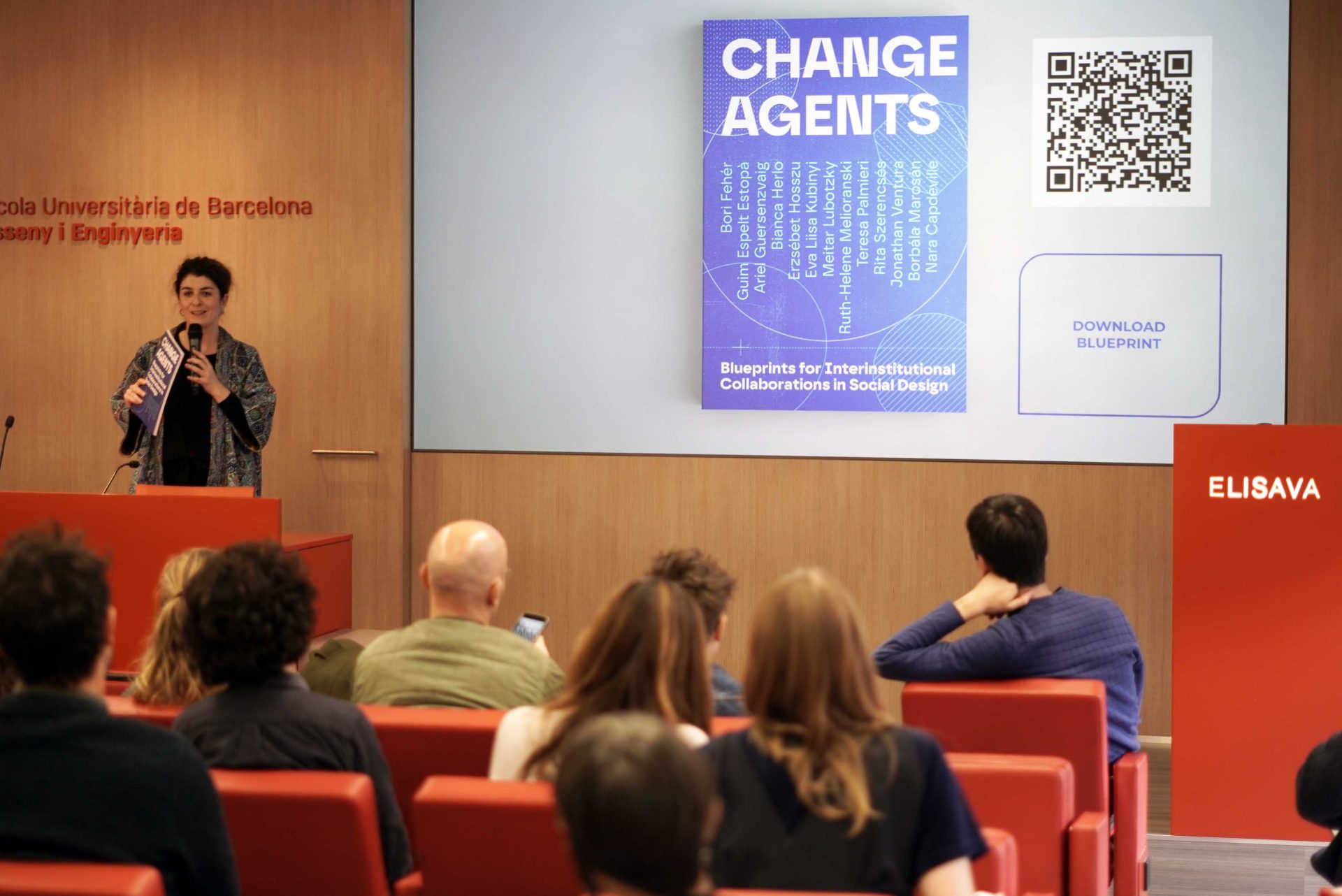
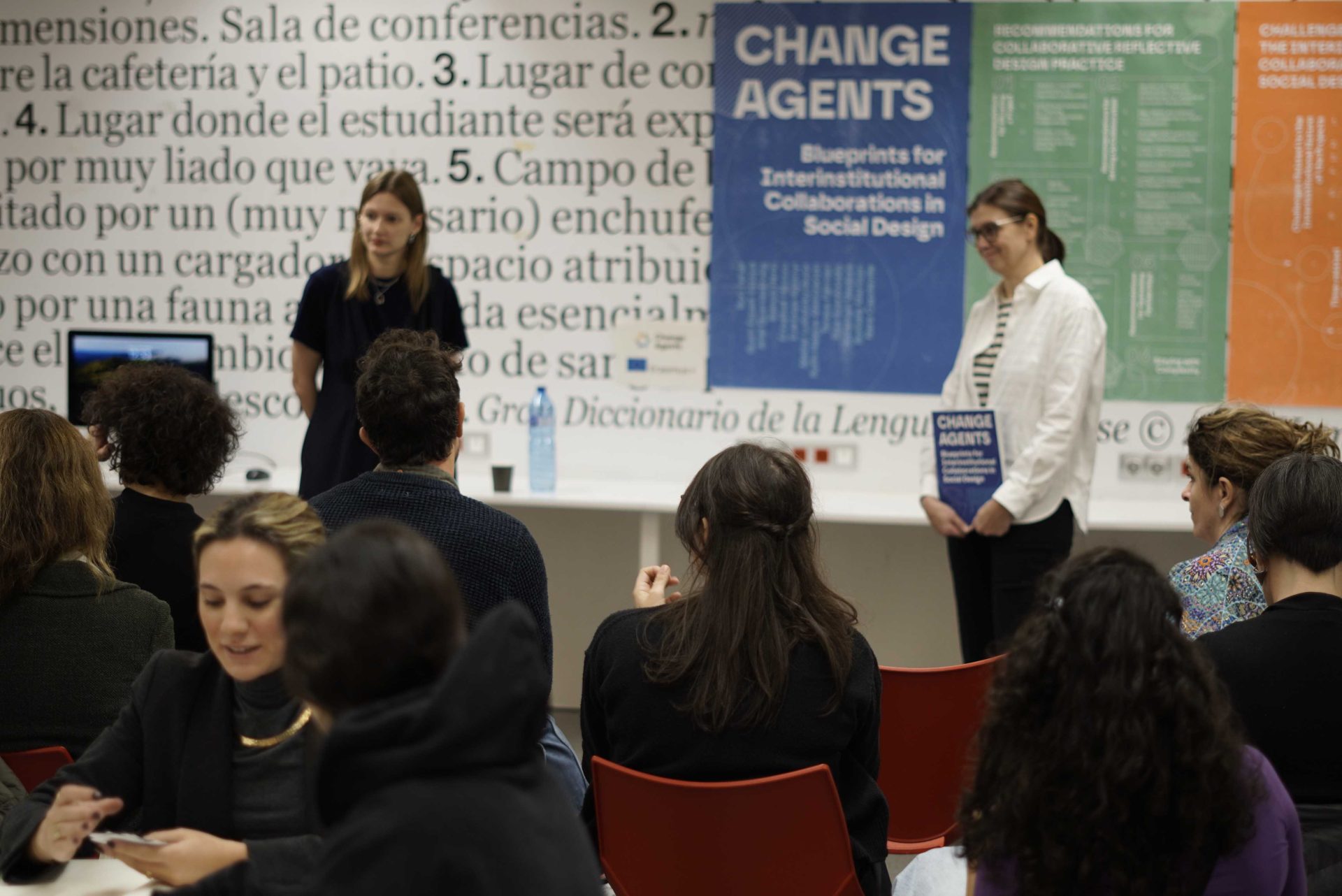
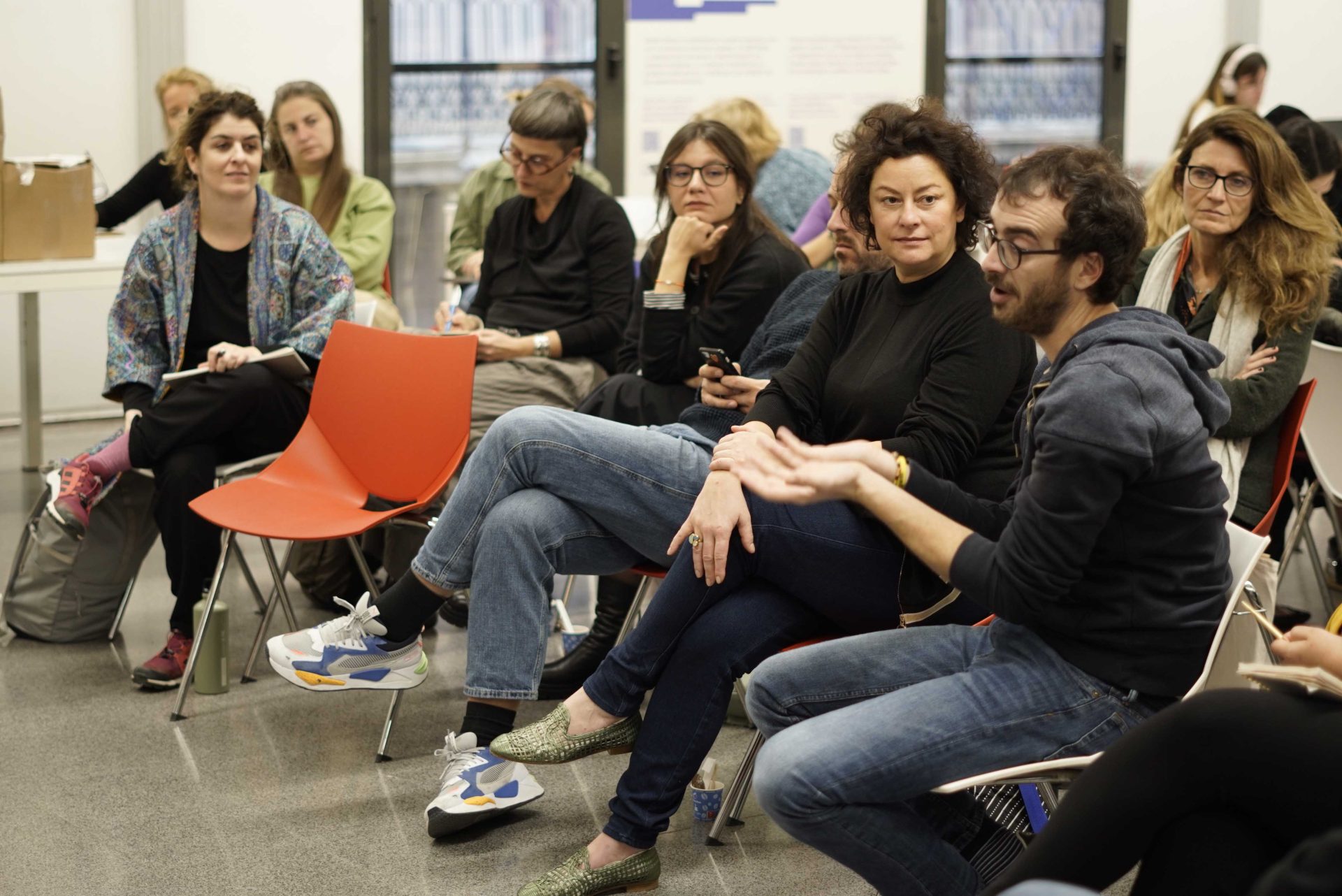
The guide was unveiled on 21st November 2023 at a one-day conference hosted by ELISAVA in Barcelona, where professionals from universities and civil society organisations gathered to explore innovative models for addressing societal challenges through community engagement and social design.
“During times of change, it is vital to create space for sharing experiences and encouraging reflection. This is essential for cultivating smooth collaboration between organisations and advancing towards common goals.”
Bori Fehér, MOME
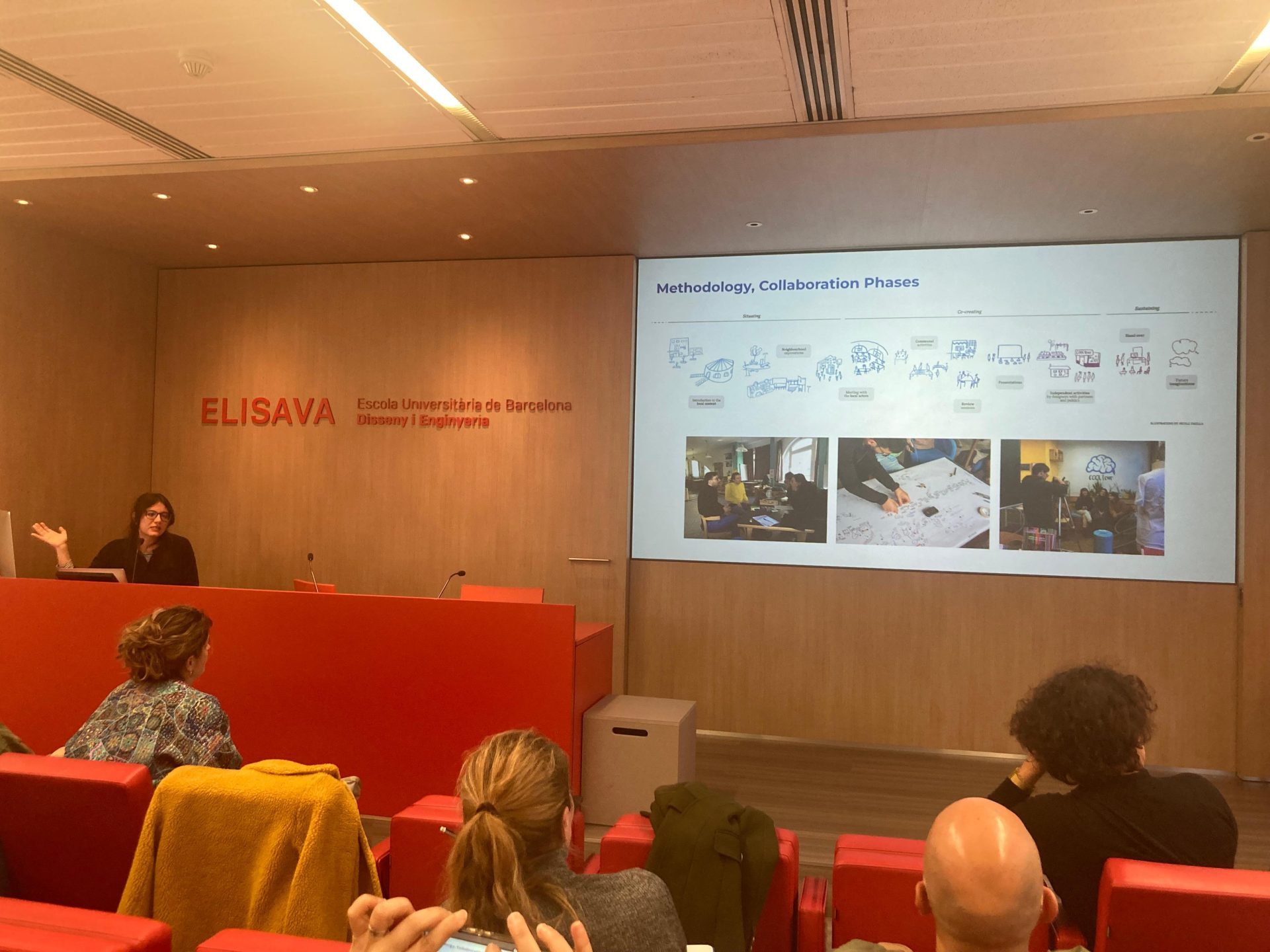
During the conference not only the final blueprints but also the process that lead to them were presented, among other things, the Pilot developed in Bolzano based on the collaborative educational framework called Project1. The experiences and insights on what collaboration means for those involved emerged from collactively reflecting on Project 1 with students, professors, the NGO partner OfficineVispa and other participating local actors were shared with the public providing grounded and concrete examples on important aspects to consider in inter-institutional collaboration.
More information and the publication are available here: https://socialdesignnetwork.org/project/erasmus-change-agents/
“This project aims to enhance collaboration between NGOs and academia by promoting collective reflective practices. By granting NGOs and equal role in interinstitutional partnerships, the project fosters an environment of dialogue and transparency among various stakeholders. Practical reccomendations and proposed workshop series will assist researchers in creating safe spaces for these important discussions.”
Eva Liisa Kubinyi, EKA
What’s next with Change Agents?
On the 22nd of November the Change Agents partners discussed possible futures of the project and all expressed the willingness to continue the collaboration and further explore social design pedagogical futures, stay tuned :-)!
Change Agents is co-funded by the European Union’s Erasmus+ program.
Change Agents project partners are members of the Social Design Network.
